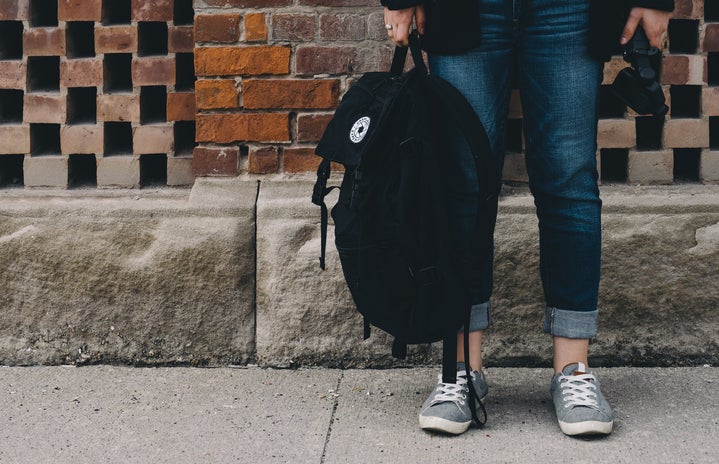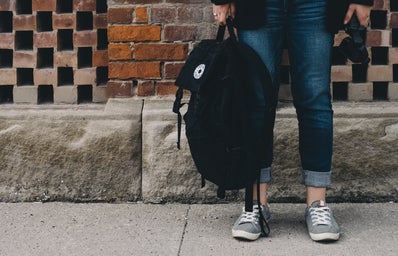The long Thanksgiving holiday weekend might be over, but student protests against the Ferguson grand jury decision are not. Students across the U.S. started their first day back from break by continuing their protests. Students protested through class walkouts, die-ins, rallies and social media.
The anger fueling these protests stems from the St. Louis County grand jury’s decision not to indict Missouri police officer Darren Wilson who fatally shot Michael Brown, an unarmed black teenager, in August. The Michael Brown case has also been used as the face of bigger movements tackling institutional racism in America and police brutality and militirization.
“Michael Brown’s death was a catalyst for a lot of issues in this country,” said Karisa Tavassoli, a 20-year-old student at Washington University in St. Louis. Some 300 students staged a walkout into the freezing cold on Monday. “We are fighting for the oppressed.”
In Philadelphia, dozens of Drexel University students laid down and shut down an entire intersection in front of their school library for four and a half minutes in memory of the four and a-half hours Michael Brown was lying dead on the street. Other protestors carried signs that read, “Black lives matter,” and, “No indictment, no peace.”
In Northern California, students joined other protestors to shut down two busy intersections near Standford University. A mass of protesters in Boston blockaded Harvard Square and Massachusetts Ave. in front of Harvard University. More than 50 students from local universities around Buffalo marched with their hands up, chanting, “Hands up! Don’t Shoot!” Over 100 students in Jersey City walked out of classes to stage a die-in and rally outside the New Jersey City University library. Hundreds of protestors blocked a major commuter route near Washington, D.C. during the morning rush hour. Students also protested in New York City, Los Angeles, Baltimore and other cities across the country.
Even middle school students joined the protest. Kendi King, the 12-year-old daughter of writer Shaun King, apparently walked out during her lunch period with the Harry Potter Hogwarts club at her Orange County, California middle school.
Many white students and non-black students of color also joined fellow black students to stand in solidarity with them and educate others about ideas of privilege.
“We come from a privileged background, and it’s easy for many of our friends to deny what’s going on in this country,” one white Manhattan prep school student explained to WABC in a New York City protest. “But we feel it’s our duty to speak up for what’s right — speak up for justice.”
The Ferguson controversy shaking up the country is also revealing an ugly truth behind many universities that supposedly promote ‘diversity,’ says Rutgers University student Avatara Smith Carrington.
“The controversy and injustice occurring in Ferguson has definitely showed me how far my university has to go in terms of transcending the ‘diverse’ label and actively promoting community-building by breaking down both the privilege and oppression present that generates apathy without fully understanding the facets of systematic racism,” says Smith Carrington. “Social media and protests have showed how far people have come in terms of organizing, but how much further we must push ourselves past comfort and into accepting that ‘post-racial’ is not and will never be part of this country’s tapestry.”
Despite St. Louis Country Prosecuting Attorney Bob McCulloch’s concerns about social media spreading misinformation, many students believe social media is a great space to organize demonstrations, spread activism and take control of how the story is told outside of the media.
“Because of social media, the police don’t have control of this story,” said David Karpf, assistant professor of media and public affairs at George Washington University. “It’s opened everything up, changed how the media decides what’s worthy of coverage — and who to trust.”
And yet, social media has also highlighted a racial divide that still exists even in our generation of college students.
Rutgers University student Candice Mazon says she was shocked at some of the hurtful, insensitive and racist posts shared shortly after the announcement of the Ferguson grand jury decision. Of course there are ones that are blatantly racist such as those telling black people to go back to Africa if they’re so mad at this country, but then there are others that aren’t as direct but just as hurtful, says Mazon. She believes people saying things like “#AllLivesMatter” or “Violence isn’t the answer,” oversimplify the issue, silence black people’s voices that need to be heard and ignore the hundreds of years of violence against black people and other people of color in this country.
“I had one group of white ‘friends’ who attacked a black girl for trying to explain why racism against white people doesn’t exist, only discrimination, because racism is at a systemic and institutional level,” said Mazon. “They tried to say ignorant things like ‘Oh, but how is it institutional when the president is black?!” and just egged each other on to attack the black girl saying things like, ‘Yeah girl, tell her!’ The fact that they’re grouping together to disempower and silence black people’s voices is further reinforcing the racism that exists.”
One particular quote Mazon found on Tumblr resonated with her: “Expecting marginalized peoples to disregard their own emotions to calmly educate you is the epitome of entitlement.”
Other Students like Geralyn Williams, also from Rutgers, believe that social media is a great tool for organizing and spreading information about developments the moment they come up, but it can also demoralizing when you’re constantly coming across friends who care little about the issue or trivialize it.
“This is an interesting time to see what people truly believe and how they get their information,” said Williams. “I’m all for posting how you feel if it helps you, but on issues like this, it’s hard to ignore when people ignorantly post with no information on what is going on. The type of posts where no conversation can be had are only detrimental to the debate that is affecting our country, and I have no patience for them.”
Many students protesting also want to underscore the fact that what happened with Michael Brown isn’t just a one-time thing or an isolated incident.
In a mostly peaceful demonstration in downtown Seattle, around 200 people called for a dialogue on race relations and police tactics in light of federal monitoring of the police department there due to allegations of excessive force.
In Los Angeles, some 30 protestors also remembered Ezell Ford, a 25-year-old black man who was also fatally shot by police only two days after Brown. The protestors marched from a police station to the intersection where he died with signs like “Ferguson is everywhere.”
Brown’s death has sparked worldwide debate on the small town of Ferguson, a predominantly black community with a predominantly white police force.
Lawyers for Brown’s family said the teen had his hands up and was trying to surrender, while Wilson, who resigned last week, claims he shot Brown out of self-defense.
On Monday, President Barack Obama asked Congress for $263 million to pay for body cameras for police officers to wear to avoid the battle of hearsay that Ferguson has become. U.S. Attorney General Eric Holder also announced plans to better train police and end racial profiling.
Many groups involved in Monday’s demonstrations had also urged supporters to boycott Black Friday using the hashtag #BlackoutBlackFriday to deprive large retail corporations of some of the black community’s $1 trillion-plus spending power according to Forbes.
Have you participated in any protests on your campus, collegettes? We’d love to know in the comments below!

